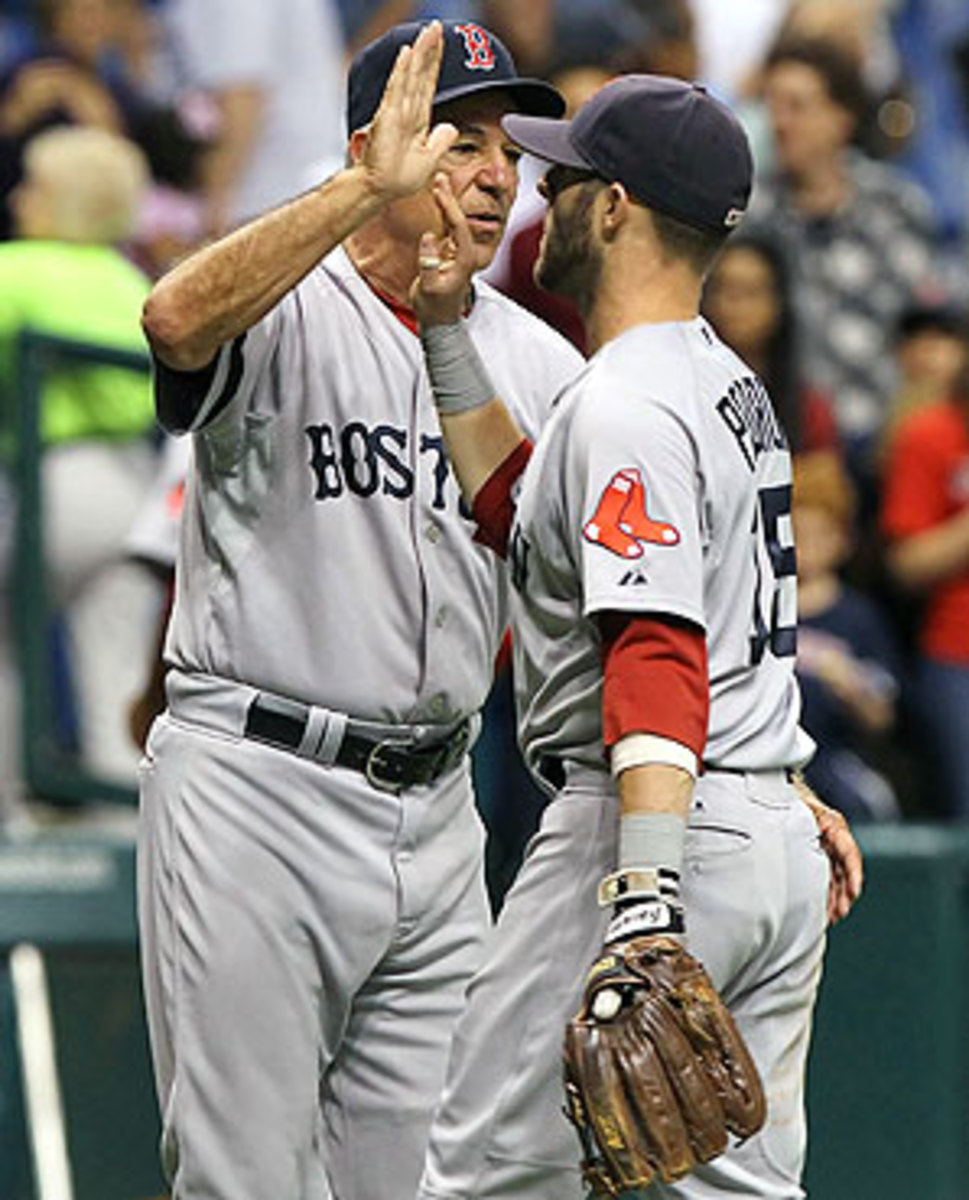Whether in sports or in life, the goal is often to make it home
In sports -- as in life -- there are two states of being: Home and Away. There's no such thing as a neutral site, some earthly purgatory neither heaven nor hell, neither here nor there. No matter what the Super Bowl suggests, you are always one or the other, Home or Away.
Home is by far the happier place, the source of home field (or home court or home ice) advantage -- the home cooking of a home stand. Home plate is famously shaped like a house, though a house is not necessarily a home and home is not necessarily a house. How to define Home? Baseball still comes closest: we're safe at Home.
But half the time in sports we have to be Away, as I am now, on assignment across the country, wishing I were Home. For me, every trip is a home run, a round-tripper, an effort to get back to where I started, to the young kids I left crying or sulking at the airport curb, asking why I can't stay Home, why I have to go Away.
From the air -- from my outbound flight, where I make these notes on a paper napkin -- America is a Rorschach test. Every lake is an inkblot, and every cloud conceals a face. Out my window is a crazy quilt of sports: The perfect rectangles of soccer fields and tennis courts, backyard pools and basketball slabs, the infinite loops of race and running tracks, the blazing high school gridirons, the golf courses like dropped sausage links. (From an airplane, all golf is miniature golf.)
Where others might see farms and roads and rooftops I only see the mosaic of our national obsessions, the games that have taken me Away from Home.
Those games turn my employers into my oppressors: "Why are they making you go Away?" the kids ask, incredulous, of the tyrants who pay my wages. "Why can't you write at Home?"
When my wife appears on ESPN, broadcasting basketball from some far flung arena, the younger ones peer behind the television set, in the hope that it's an empty frame and Mom is crouched behind it, as in a puppet show. The baby waves at the screen, wondering why this distant mother won't wave back, untouchable behind a pane of glass. Every half hour they ask, "When is she coming Home?"
You Can't Go Home Again is a novel by Thomas Wolfe, who should have known better than to believe his own title, which is always quoted as gospel truth. In 1914, when he was 13 years old, Wolfe was a batboy for the Asheville Tourists, whose skipper, Jack Corbett, was the model for the novel's Nebraska Crane, a professional baseball player "emblazoned in the papers every day." Corbett knew that going Home was the whole point, at least in baseball.
Red Sox manager Bobby Valentine -- Away from Home this summer, on a miserable West Coast road swing -- picked up his son at the San Francisco airport and brought him to the Oakland Coliseum. If you can't go Home, as the Wolfean conceit contends, Home can surely come to you.
But Valentine arrived a little late to the park that afternoon, and got ripped by the small-minded or the small-hearted, people impervious to the gravitational pull of Home. To me, Valentine's son was a healthy reminder that one team in every ballgame consists of 25 men Away from Home.
These reminders seldom intrude on our entertainment. But in September, when Valentine pulled Dustin Pedroia from a game because his wife had just gone into labor, the domestic Home life of the Sox second baseman suddenly came into sharp focus, while the ballgame blurred into the background, never to return.
The same kind of thing happened yesterday, while I was far Away from Home, interviewing a well-known sports figure for a future feature. My phone buzzed to life: A photo from my wife, of our first-grader rock climbing. The interviewee said a moment later, "I love what I do but I hate the travel. I can't stand being Away."
Whenever a coach resigns or retires and cites on the way out a desire to spend more time with his family, the rationale is dutifully ridiculed. However it's a punch line I never laugh at, a cliché I believe to be true. Why shouldn't it be? When my return flight lifts off the tarmac tonight and climbs, it will feel like a foot leaving third base, taking a tentative lead, and then suddenly sprinting for Home.
The best thing about living on the East Coast is almost every flight back has a tailwind.






